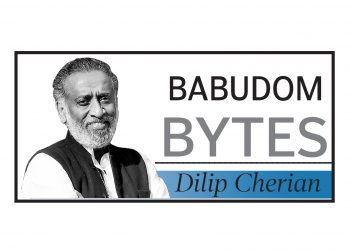Frequent transfer is a fait accompli in government. But Pimpri- Chinchwad police commissioner Sandeep Bishnoi, who was recently transferred, has approached the Central Administrative Tribunal (CAT) challenging his transfer order. He was moved out from his post in less than a year. He has been succeeded by Krishna Prakash, a 1998-batch IPS officer.
Bishnoi has stated that “such abrupt transfers without justification or valid reason is contrary to law and ought to be set aside.” Bishnoi and Prakash are part of a major reshuffle carried out by the Maharashtra government in which around 50 officials were transferred. Prakash is the third police commissioner of Pimpri-Chinchwad in two years after the state government established the commissionerate in the industrial town, as law and order became a challenge following a rise in the number of street crimes and cases of vandalism. Bishnoi’s predecessor, senior IPS officer RK Padmanabhan, too was transferred before completing two years in office.
RBI picks MPC members
The Reserve Bank of India (RBI) had to postpone its much-awaited monetary policy review in the last week of September due to the lack of quorum. The delayed nomination of three government external members to its six-member Monetary Policy Committee (MPC) had led to the unprecedented postponement. Now the RBI has appointed Ashima Goyal, Jayanth R Varma and Shashanka Bhide as MPC members for a period of four years.
The MPC is a statutory committee responsible for fixing the benchmark interest rate.
According to the RBI Act, the committee meets at least four times a year and publishes its decisions after each meeting. The meeting can begin only if at least four out of the six members are present. The new appointments were necessitated after the four-year tenure of the three government-nominated members Chetan Ghate, Pami Dua and Ravindra Dholakia ended in August.
Adhocism in action
After the heady announcement heralding long-awaited reforms, Indian Railways is moving cautiously on the implementation. Some observers are surprised at the slow pace. From the time when Covid struck and passenger rail traffic almost stopped, the Railways has had plenty of time on its hands to consider its internal rearrangement.
While all posts of Members of the Railway Board are ex-cadre now and should be filled with suitable officers, based on seniority and residual service, the Railway Ministry is edging ahead with great caution. Sources say that the post of Director General of HR (DGGHR) was filled with an Indian Railway Personnel Service (IRPS) officer, even though more senior officers from other cadres are eligible and available. It is also being reported that the post of Member Traffic & Rolling Stock is likely to be given to an officer from the Indian Railways Service of Electrical Engineers (IRSEE). Similarly, there seems to be a proposal to appoint the Member (Finance) from the Indian Railways Accounts Service (IRAS).
So far so good. But there is some grumbling among the Indian Railways Service of Engineers (IRSE) and Indian Railways Service of Mechanical Engineers (IRSME), which seem to have lost out on apex grade posts to the other services in the new plan. According to sources, the Railway Ministry is still not drafted the Recruitment Rules, which may explain the sense of adhocism prevailing in the ministry’s actions.
Share a babu experience! Follow dilipthecherian@twitter.com. Let’s multiply the effect.




